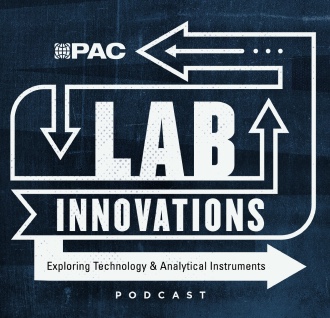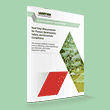May-2025
Securing sustainability claims: certification and credit transfers
The role of certification in promoting the credibility of SAF and alternative marine fuels, with a special focus on the ISCC Credit Transfer System.
Laura Günther
International Sustainability & Carbon Certification
Viewed : 455
Article Summary
The global push for decarbonisation has placed significant pressure on ‘hard-to-abate’ sectors and major contributors to greenhouse gas (GHG) emissions, such as aviation and maritime transport. International and national climate goals targeting net-zero emissions by 2050 and voluntary programmes such as the Science Based Targets initiative (SBTi) are intensifying the need for drastic reductions in carbon footprints. Given that direct electrification poses challenges within these sectors, sustainable aviation fuels (SAF) and alternative marine fuels (AMF) present essential and non-negotiable options for achieving ambitious climate targets.
SAF is a renewable, non-fossil-derived fuel from biomass, waste oils, and fats, or e-fuel generated using renewable electricity, which can reduce emissions by up to 80% compared to conventional jet fuel (The University of Manchester, 2023). SAF’s chemical and physical properties are nearly identical to those of traditional jet fuel. This compatibility allows SAF to be mixed with conventional fuels in varying proportions, utilise the same supply infrastructure, and require no modifications to aircraft or engines, making it a ‘drop-in’ fuel technology. To ensure technical and safety standards, SAF must be produced according to one of the ASTM-approved methods (ASTM, 2023), the most widely used of which is hydroprocessed esters and fatty acids (HEFA), converting waste oils and fats into SAF. Another rising process is alcohol-to-jet (AtJ), where alcohols such as ethanol and isobutanol are transformed into SAF. Drop-in AMFs include biofuels, e-fuels, and liquefied biogas (Bio-LNG). In contrast with SAF, non-drop-in AMFs, such as methanol, ammonia, and hydrogen, also play a crucial role in the sector. While these non-drop-in fuels offer greater long-term sustainability benefits, they involve significant investment in new technologies.
Policies require both the adoption of alternative fuels and evidence that these fuels produce measurable sustainability outcomes. At the same time, market participants – ranging from producers to end consumers – increasingly seek transparency, accountability, and verified carbon footprint reductions throughout the supply chain. Rigorous certification systems like the International Sustainability & Carbon Certification (ISCC) confirm these standards are met. This article explores the role of certification in promoting the credibility of SAF and AMF, with a special focus on the ISCC Credit Transfer System (CTS), its structure, impact, and significance for stakeholders. The CTS enables the tracking and trading of SAF credits for verified carbon reductions within the voluntary market.
From EU RED to CORSIA: policy-driven pathways to net-zero transport
The aviation and maritime industries are considered among the most difficult to decarbonise due to their current heavy reliance on fossil fuels, each accounting for approximately 2-2.5% of global CO₂ emissions (IEA, 2025) (IEA, 2023). Reducing emissions from these sectors requires developing, producing, and scaling alternative low-carbon fuels and adopting these solutions throughout global supply chains and policies.
As part of the European Union’s (EU) Renewable Energy Directive (RED), which sets targets for the EU’s renewable energy use and GHG reductions, the ReFuelEU Aviation Regulation focuses on reducing aviation’s carbon footprint and accelerating the transition to sustainable aviation practices, including blending targets for SAF. Beginning in 2025, at least 2% of all aviation fuel used within the EU must be SAF, gradually increasing to a minimum of 70% SAF in all EU airports by 2050 (EUR-Lex, 2023).
Additionally, the regulation sets specific sub-targets for the utilisation of synthetic aviation fuels derived from renewable hydrogen or captured carbon. Similarly, the FuelEU Maritime Regulation aims to promote renewable, low-carbon fuels and clean energy technologies for ships to reduce GHG intensity. This regulation stipulates that the GHG intensity limit should decrease by 2% starting in 2025, with more ambitious reductions planned for subsequent years, ultimately achieving an 80% reduction by 2050 (EUR-Lex, 2023).
From the global perspective, the International Civil Aviation Organization (ICAO) established the Carbon Offsetting and Reduction Scheme for International Aviation (CORSIA), aiming to stabilise net CO₂ emissions from international aviation at 2020 levels. To achieve this, the framework sets rules for monitoring, reporting, and verifying emissions, with a system to offset emissions via the use of credits, CORSIA Eligible Units, or the usage of SAF, neutralising the environmental impact of international aviation growth. The International Maritime Organization (IMO) has established the IMO GHG Strategy, which aims to achieve net-zero GHG emissions from international shipping by 2050. According to projections from the Fourth IMO GHG Study, approximately 64% of the total CO₂ reduction in the shipping sector by 2050 is expected to come from the use of alternative low- or zero-carbon marine fuels (IMO, 2020).
Certification as a cornerstone for sustainable fuel production and traceability
Sustainable fuels are defined by strict criteria that ensure their production is environmentally responsible. Key factors include the selection of raw materials, life cycle emissions, land use impact, and traceability. Certification mandated by the EU RED and ICAO CORSIA demonstrates compliance with these requirements and documents traceability throughout the supply chain, covering feedstock identity, production processes, and chain of custody options. It increases transparency for governments, regulators, and consumers and provides clear and accessible information on the environmental impact of the fuel, the reduction of greenhouse gases, and the integrity of the supply chain.
ISCC is the leading certification system for the EU renewable energy market, regulated by the RED. The system applies globally and encompasses all agricultural and forest biomass, biogenic waste and residues, non-biological renewable materials, and recycled carbon-based materials. Certification under ISCC can be utilised throughout the entire supply chain and is relevant to a wide array of sectors and markets. For this purpose, ISCC operates distinct certification systems, including ISCC EU, ISCC PLUS, and ISCC CORSIA, with the latter also being the leading certification system under the ICAO CORSIA framework. Accredited third-party Certification Bodies (CBs) verify compliance with the certification requirements and issue certificates following successful auditing.
Since 2011, ISCC EU has demonstrated compliance with the legal requirements for sustainability and GHG emissions savings criteria established by the RED. As of February 2025, it boasts 7,536 valid certificates (ISCC, 2025), making it the largest of the three schemes.
The ISCC PLUS certification was developed for voluntary markets such as food, feed, chemicals, plastics, packaging, and renewable energy sources outside the scope of the RED. With 5,545 valid certificates (ISCC, 2025), it is the second-largest scheme. ISCC CORSIA, specifically designed to comply with the ICAO framework for SAF, has been recognised since 2020. Currently, it is the fastest-growing scheme, with a remarkable growth rate of 326% generated in 2024, when the number of certificates surged from 95 to 405 (ISCC, 2025). This highlights SAF’s growing importance and interest among regulators, producers, airlines, and passengers.
Add your rating:
Current Rating: 4

















